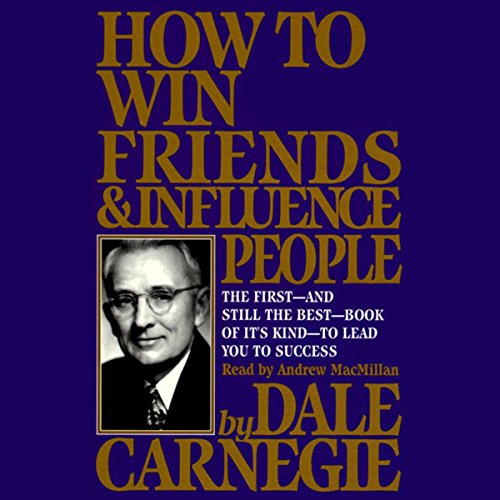
«How to Win Friends and Influence People» one of Carnegie’s most famous books. Despite the fact that the book was first published in 1936, and today it is a lively response in the hearts of readers of different nationalities. And this is not surprising. Yes, the world around us is changing at an astonishing rate, but the main thing remains the same. We all aspire to be happy and Dale Carnegie books a lot of help in this. The book “How to Win Friends …” is written as a collection of practical tips, situations and stories from real life of students, friends and family of the author, so easily finds an echo in the hearts of readers of different countries. The book teaches readers to believe in their own strength, to get rid of the different systems, master the art of communication and, ultimately, yourself put their own lives at a higher quality level.This grandfather of all people-skills books was first published in 1937. It was an overnight hit, eventually selling 15 million copies. How to Win Friends and Influence People is just as useful today as it was when it was first published, because Dale Carnegie had an understanding of human nature that will never be outdated. Financial success, Carnegie believed, is due 15 percent to professional knowledge and 85 percent to “the ability to express ideas, to assume leadership, and to arouse enthusiasm among people.” He teaches these skills through underlying principles of dealing with people so that they feel important and appreciated. He also emphasizes fundamental techniques for handling people without making them feel manipulated. Carnegie says you can make someone want to do what you want them to by seeing the situation from the other person’s point of view and “arousing in the other person an eager want.” You learn how to make people like you, win people over to your way of thinking, and change people without causing offense or arousing resentment. For instance, “let the other person feel that the idea is his or hers,” and “talk about your own mistakes before criticizing the other person.” Carnegie illustrates his points with anecdotes of historical figures, leaders of the business world, and everyday folks. –Joan Price

Repetitive, Vague, and Unnecessary This book has a few good points, but I could’ve lived without it.
but I found that it could be easy for a person to react quickly to conflicts In my honest opinion, several principles in this book are repeated around the book. I don’t see it as a disadvantage, because repetition is the key to learning. I did think several of the principles explained in the book are common sense, but I found that it could be easy for a person to react quickly to conflicts. This book has taught me the importance of staying in control and how beneficial it is to be in control of our behaviors and act in a way of service to others. The examples described…
Changing my life. My Dad gave me a copy of this when I graduated highschool in the 90s but I wasn’t “ready” for it yet, I don’t even think I read it to be honest. Now I’m 37 and realizing that I’ve put my personal growth on the back burner for entirely too long. I had pretty much given up on making new adult friends. I had actually self-diagnosed myself with Asperger’s because I was having such a difficult time trying to figure out why people (including myself) do the things that do. The realization that…